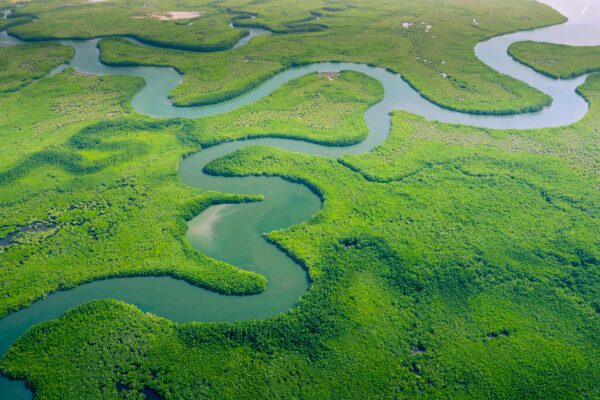
Forests, Oceans, and Biodiversity: The Planet’s Life Support System
Forests, oceans, and biodiversity are not optional—they are the foundation of life and business. Protecting them is both an ecological imperative and an economic strategy for resilience and growth.
Earth’s forests, oceans, and biodiversity form an intricate web that sustains life and underpins global economic stability. These natural systems are not mere scenic backdrops—they are critical infrastructure for climate regulation, water security, and ecosystem resilience.
Forests: Climate Regulators and Water Guardians
Covering 31% of Earth’s land, forests act as powerful carbon sinks, absorbing billions of tonnes of CO₂ annually. They drive the water cycle—generating rainfall, replenishing aquifers, and mitigating floods and droughts. Without healthy forests, climate stability and freshwater security collapse, threatening agriculture, cities, and economies worldwide.
Oceans: Heat Buffer and Carbon Sink
Oceans span 70% of Earth’s surface, absorbing 25–30% of CO₂ emissions and over 90% of excess heat, stabilising global temperatures and weather patterns. Ocean currents circulate nutrients vital for marine life. Yet warming and acidification are eroding this role, amplifying climate risks.
Biodiversity: The Engine of Ecosystem Services
Biodiversity powers essential services—such as pollination, water purification, and soil fertility—that secure food systems and ecosystem resilience. Its decline jeopardises health, economies, and global stability.
Why SMEs Depend on Natural Capital
Small and Medium Enterprises (SMEs) account for 90% of businesses globally and over 50% of employment. Natural capital is not abstract for SMEs—it’s embedded in supply chains:
- Forests provide timber, fibres, and regulate freshwater for agriculture and manufacturing.
- Oceans support fisheries, marine biotechnology, and renewable energy.
- Biodiversity enables pollination for crops and natural filtration for the beverage and textile industries.
- When ecosystems degrade, SMEs face resource scarcity, rising costs, and disrupted operations.
Indigenous Peoples: Stewards of Biodiversity
Indigenous Peoples and Local Communities (IPLCs), though only ~6% of the global population, manage over one-third of ecologically intact lands and steward many of the world’s most biodiverse areas. Their traditional knowledge fosters sustainable land and ocean management, reducing deforestation and preserving ecosystems. While the claim that they protect 80% of global biodiversity is debated, evidence confirms their lands are biodiversity strongholds critical for global conservation targets.
Future-Proofing Natural Capital
Safeguarding forests, oceans, and biodiversity is an investment in health, innovation, and prosperity:
- Medical breakthroughs: Over 50% of modern medicines originate from natural compounds.
- Climate resilience: Healthy ecosystems buffer disasters and stabilise weather.
- Mental well-being: Access to nature enhances psychological health and social cohesion.
Empowering youth and integrating Indigenous knowledge into policy are essential to sustain these benefits for generations.
Forests, oceans, and biodiversity are not optional—they are the foundation of life and business. Protecting them is both an ecological imperative and an economic strategy for resilience and growth.
If you have any questions or would like to discuss how our experts could best support you, please contact our ESG consultants today.










